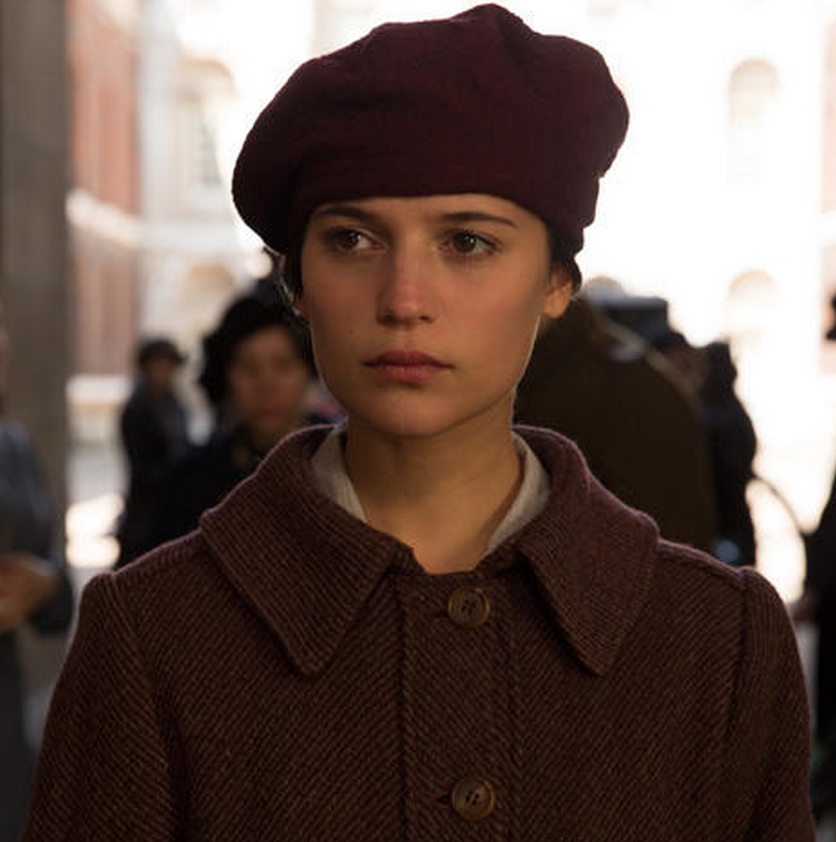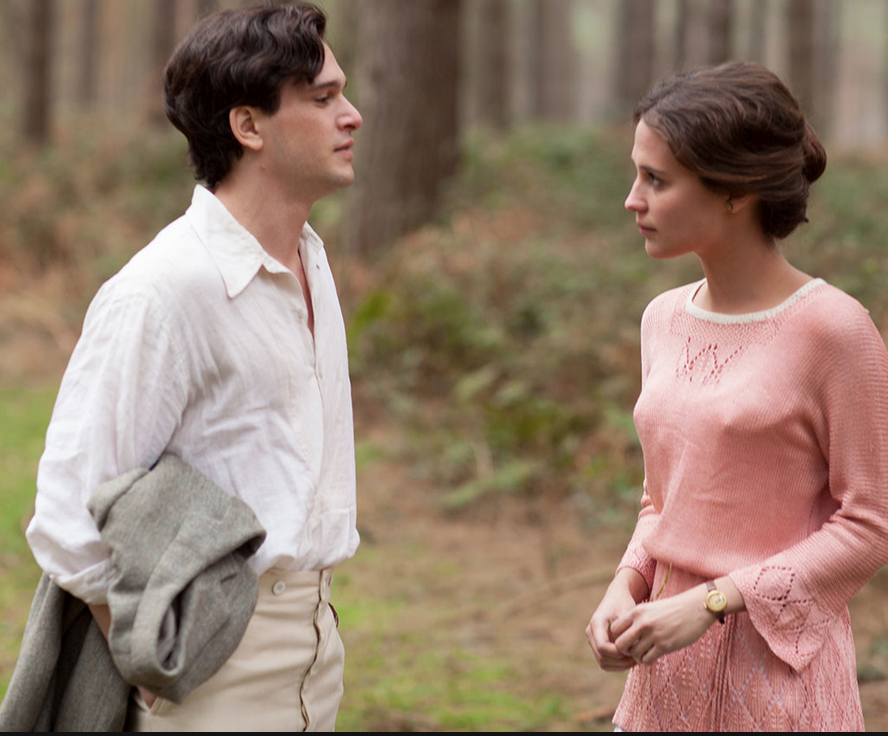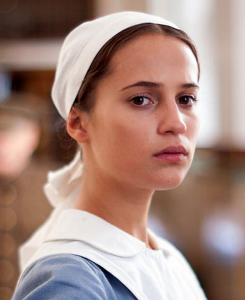 Cinema may forever be reminding us that war is hell but rarely does it offer us female experiences of that hell. “Testament of Youth,” a sweeping adaptation of Vera Brittain’s memoir of World War I, goes a long way toward correcting that inequity, even if its Masterpiece Theater sensibilities don’t quite measure up to the sparkling acuity of its source material.
Cinema may forever be reminding us that war is hell but rarely does it offer us female experiences of that hell. “Testament of Youth,” a sweeping adaptation of Vera Brittain’s memoir of World War I, goes a long way toward correcting that inequity, even if its Masterpiece Theater sensibilities don’t quite measure up to the sparkling acuity of its source material.
The film opens on Armistice Day, 1918, as Vera (Alicia Vikander), drawn and bleak, staggers among the celebrating throngs. Flashback four years, when she’s a bourgeoisie bluestocking angling to attend university against the wishes of her regressive parents (Emily Watson and Dominic West; wherefore art thou, McCuddy?), and playing one of the boys with her brother, sensitive musician Edward (Taron Egerton), and his school chums Roland (Kit Harington, showing 100 percent more range than he does in “Game of Thrones”) and Victor (Colin Morgan). With his brooding good looks, realms of poetry, and suffragette mommy, Roland’s got the makings of more of a pal, and the first bit of this story dwells on their burgeoning romance as she makes her arduous way through Oxford’s gates. It all changes just before she begins her studies, when Britain declares war on Germany, and a concern that has only faintly shadowed Brittain’s upper-class life becomes critical. All three boys enlist, and Vera finds the collegiate life she’d craved so trivial that she enrolls as a military nurse, working domestically and then on the French frontlines as she grapples with tragedy after tragedy.
A true British production, this film looks a lot more expensive than its relatively low budget ($10 million): Consolata Boyle’s costume design is both lavish and cunning, and Lucia Zucchetti’s editing establishes a deliberate, thoughtful pace that allows us to bond with these characters enough to empathize with their losses. But first-time feature director James Kent has yet to transcend his background in British television, and he builds his case about the ill-preparation of these sheltered girls and boys soap-operatically, as if he’s studied the BBC how-to manual too slavishly. Nary a visual punch is pulled; he even knocks off the classic battlefield crane shot from “Gone With The Wind” though it doesn’t deliver the same impact here.
In general, “Testament of Youth” is awfully nonverbal, relying on Vikander’s eloquent face and pans of windswept beaches and meadows to convey its revelations. “Show don’t tell” is generally a wise policy for war films — all films, actually — but in this instance too much is lost in translation. Vera and Roland are both writers, after all, and her 600-page book is clever, honest, and, above all, chatty — though it always earns its keep with well-crafted insights. She describes her youthful good looks as “childish chocolate box prettiness,” and laments “war had made masochists of all women.”
Brittain’s feminist sensibilities are this film’s sacrificial lamb. In her book she may emerge as a tough customer who resents the complacency of many women in her milieu but she’s also a die-hard liberationist who prizes her female friendships and role models, including a head nurse, a favorite professor and many brilliant co-eds. She also has a positive relationship with her supportive if timid mother. But Kent and screenwriter Juliette Towhidi (who didn’t exactly go outside the box in “Calendar Girls”) choose instead to reduce Brittain to a chilly version of what essayist/poet Adrienne Rich referred as “the exceptional woman” — a female who expects all the rights of men but eschews other women, preferring instead to be the “exception to the rule.” As a result, Watson is wasted as a gross caricature of the hysterical Victorian woman, and a scene in which Miranda Richardson, playing an Oxford headmistress, learns of her soldier brother’s death gets short shrift. Apparently Brittain is the only lady allowed to register real depth. What’s more, a love triangle between Roland, Vera, and Victor is manufactured in a way that seems little more than a cheap ploy to render this uncompromising feminist as more palatable to a general audience.
Given that Roland and Vera’s war correspondence comprises much of her book, mining their letters would’ve exposed us to more of their radical thought while sidestepping the dreaded voiceover. Jane Campion or Ang Lee, both of whom have a knack for subversive, gorgeous-looking period dramas, would have proven up to that task but Kent seems too conventional to impart such nuance. Still, with expert cinematography and the help of Vikander’s powerful physical expressiveness, he manages to paint a much-needed picture of women during wartime. Even better, it’s not all pretty.
This was originally published in Word and Film.
